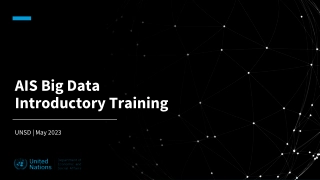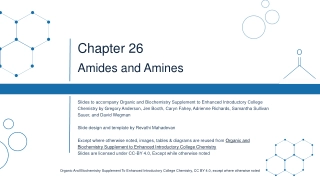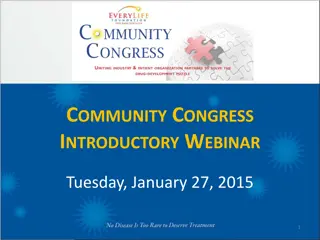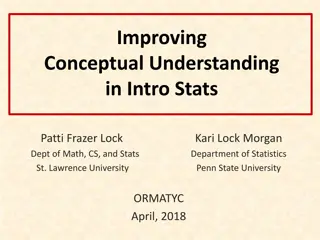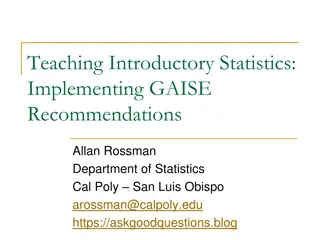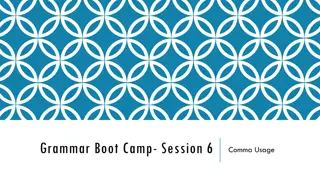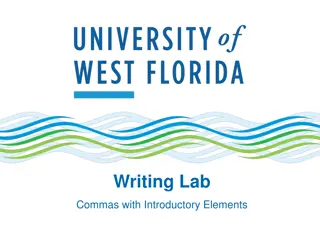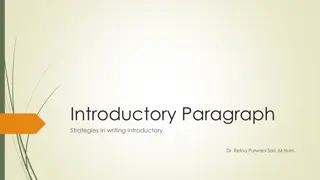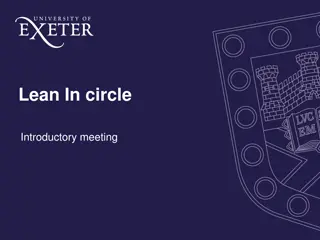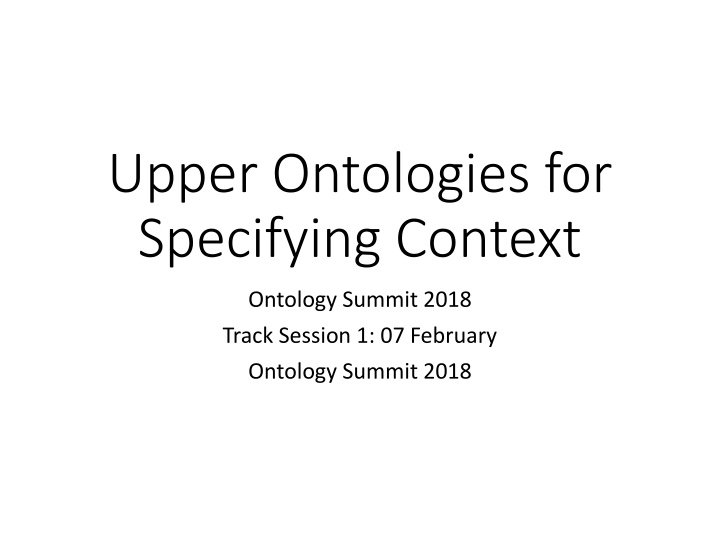
Ontology Summit 2018: Upper Ontologies for Specifying Context Track Session
Explore the objective of the Ontology Summit 2018 track focusing on upper ontologies for context specification. Delve into the role of upper ontologies in defining context and understanding context partitions, all within the realm of ontology usage. Discover the significance of formalizing meaning within the context and the importance of context-sensitive referents in ontologies.
Download Presentation

Please find below an Image/Link to download the presentation.
The content on the website is provided AS IS for your information and personal use only. It may not be sold, licensed, or shared on other websites without obtaining consent from the author. If you encounter any issues during the download, it is possible that the publisher has removed the file from their server.
You are allowed to download the files provided on this website for personal or commercial use, subject to the condition that they are used lawfully. All files are the property of their respective owners.
The content on the website is provided AS IS for your information and personal use only. It may not be sold, licensed, or shared on other websites without obtaining consent from the author.
E N D
Presentation Transcript
Upper Ontologies for Specifying Context Ontology Summit 2018 Track Session 1: 07 February Ontology Summit 2018
Track B : Upper Ontologies for Specifying Context Track Co-champions: Mike Bennett David Whitten Blog Page Not there yet
Objective The objective of this Ontology Summit 2018 track is to understand: The role of upper ontologies in providing or using context Upper ontology partitions that explicitly define a kind of context Disposition of other model content that may be considered as the context for something, in the, erm, context of upper ontologies.
Words I nearly didn t come out of that bank
Concepts Building Aerobatic Maneuver Is a Is a Bank Bank
Scope WHAT WHO WHEN EVA HOW WHERE " The FAA predicts 400,000 to 2.3M licensed Part 107 remote pilots by 2020 - FAA Air Traffic Organization Policy: Order JO 7200.23 WHY 8 10/9/17 jring7@gmail.com
Why we Need Context Meaning iscontext Dictionaries: the meaning (referent) of a word or term is sensitive to the context in which it is used Ontologies: should deal with that formally Desired end point: there should be nothing in the ontology for which it can be said that the meaning of that item is itself dependent on context If that is the case the ontology is still just a dictionary Therefore: ontology must contain within it all the material relating to context
KR Lattice: Relatives Partition Everything which may be defined falls into one of three categories: Thing Independent Thing Relative Thing Mediating Thing Thing in Itself Thing in some context Context in which the relative things are defined e.g. some Person e.g. that person as an employee, as a customer, as a pilot e.g. employment, sales, aviation 11
Hierarchy of Contexts: Customer Bank Client Relationship played by In context Legal Person Bank Client Natural Person Retail Customer Relationship Retail Customer Organization Current Account Relationship Current Account Holder Loan Loan Borrower Relationship
Session Ideas and Motivations Hear from the leading TLOs on how they view or handle context Get someone in from ISO TC37 to talk about this Structure Usual: 2 or 3 speakers + discussion Panel? E.g. convene and interview TLO leaders as distinct from presentations? Case Studies: get some practical experience on how context is handled in real applications
Upper Ontologies The main ones are: BFO DOLCE GFO YAMATO TUpperWare UFO GIST IDEAS SUMO Also relevant / have UO elements Cyc The KR Lattice OntoUML SMIF FIBO
Discussion Topics Contextual matter in different Top Level Ontologies Notions of Context itself Different ways of dealing with Context in different ontology frameworks Context versus microtheories Practical applications to solve real world data problems Context taxonomies
Todays Session Panel and Overview of how Context is seen and handled in TLOs Brief presentation followed by Q&A Open discussions of issues raised Panelists Barry Smith: How BFO Deals with Multiple Contexts BFO Is a top-level -- which means 'domain neutral' -- ontology designed to promote interoperability across information systems dealing with data from different domains. Barry will present the background of BFO in ontology work in biomedicine and geospatial science. BFO serves as top- level ontology for multiple ontology suites. Will focus specifically on examples from the Environment Ontology (ENVO). Frank Loebe: Context in Abstract Role Models and In the GFO Upper Ontology Frank will give a brief overview of his views on 'context', including how that term may be thought of in abstract role models, along with how this relates to the General Formal Ontology (GFO) upper ontology
Next Session: 14 March More TLOs and their perspectives on context Practical implications Case studies and / or pragmatic solutions to contextual problems, that use upper ontologies.

